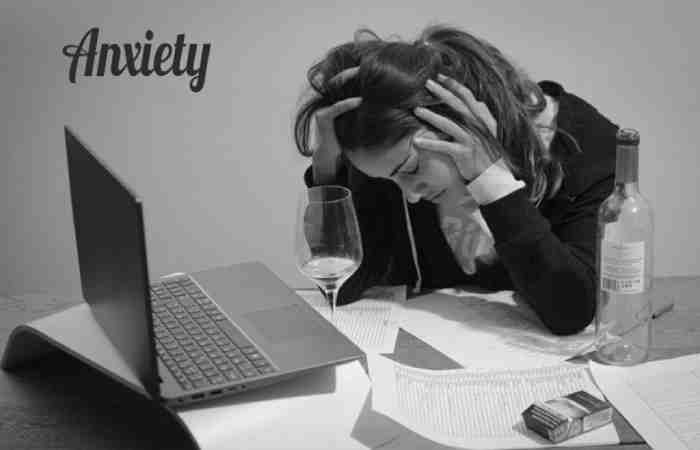Mental Health Manage Anxiety
Mental health is a state of properly-being wherein an individual realizes their abilties, can cope with the ordinary stresses of life, can paintings productively, and might make a contribution to their network.”
Focusing on what you could manage and letting cross of factors out of manage: this is the manner to follow to maintain his sanity and manage his anxiety. As World Mental Health Day takes place, zoom in on five science-tested strategies for dealing with stress.
Stomach knots, negative thoughts, difficulty sleeping, nervousness these reactions can be anxiety symptoms that it is essential to identify to take care of mental health and regain a state of general well-being. Fortunately, there are some science-tested strategies you can put into practice right now.
How can Science help us?
The best universities globally have highlighted strategies to help us decrease anxiety and regain control even in stressful situations. For example, in a study at the University of Cambridge, we observed individuals going through a challenging period and living in poor conditions.
Some individuals spiraled into destruction and experienced high anxiety levels, while others maintained stable mental health with similar circumstances. In addition, we have found that some people approach issues with a calm and determined frame of mind, while others panic and lose ground.
What is the Difference Between the two Groups?
It is the strategy they use to manage their stress. Fortunately, there are scientifically test methods to take back control of our mental health.
Five science-tested strategies for managing anxiety
1. Take back Control of your Life
The first thing to do is to let go of the stuff out of control and focus only on what you can control. Getting a job or getting a long-awaited text from someone we don’t own things tend to frustrate us. It is the unknown that can lead us into the dangerous ground for our mental health.
Begin to adopt rituals to ease their anxieties to regain control – such as drinking exactly ten sips of water every time they hydrate or closing their bedroom doors several times – for fear that what they wish will not happen; they do not perform these rituals.
The response of an anxious mind seeks to be proactive in the face of an uncertain situation. But, unfortunately, others get superstitious and say to themselves, “If I tell others that I’m glad my boss approved of my ideas, that won’t happen again .” If we start to succumb to this temptation and become a slave to our superstitious thoughts, we are paving the way for obsessive-compulsive disorder (OCD).
2. Counteract Wrong Clothes
As soon as OCD takes hold of you and you feel like performing a ritual, remember this: It is much easier to quiet a habit from the start. As soon as you allow it, you are trapped. So let go of all those thoughts and superstitions, and the next time you feel the pressure of an OCD, resist it.
Failure to perform these rituals may temporarily increase anxiety levels for fear of the imaginary fallout. But the more you fight, the more these impulses will decrease, and the more anxiety will subside.
3. Do Something we like
Dwelling on what makes us anxious or frightens us is evil for our mental health. Instead of considering negative thoughts, do something you like to calm your mind and force it to focus on something else.
Have you always wanted to write a short story? Or take an online personal development course? Now is the time to get started. If you have to juggle work and family during this difficult time, the thought of making yourself happy can make you feel guilty. Get rid of that guilt. Taking care of yourself is essential to developing kindness towards yourself and easing your anxieties.
4. Give Meaning to your Life
We all once thought that life would be much easier if we had no responsibilities and goals. And yet, it is the other way around. The famous neurologist and author of the book Man’s Search for Meaning,explains it this way: “What a human being needs is not to live without tension, but to strive for a good goal, to carry out a freely chosen mission. He needs, not to release his tension, but rather to feel called to accomplish something.”
Seek out a constructive goal to work. Even half an hour a day will suffice, the important thing being to stick to it. This method will not only achieve things but also provide an essential feeling: personal satisfaction. When you are satisfied with yourself, you start to feel happier and more in control of your life.

5. Create an Oasis of Peace
Sometimes we all fall into a downward spiral and lose control altogether – because we’re overloaded with work or don’t know how to pay the bills at the end of the month. In these times of chaos and distress, it is essential to rest for a moment in this oasis of peace that is mindful meditation. There are many resources online, such as Headspace and Stop, Breathe & Think apps to guide you.
When the flow of thoughts begins to subside, you once again feel in control and ready for any challenge. And as my research has shown, this state of mind is correlated with decreased anxiety and improved mental health.
Conclusion
Mental health mentions cognitive, behavioral, and emotional well-being. It’s approximately the manner human beings suppose, feel and behave. People every so often use the time period “intellectual fitness” to refer to the absence of a intellectual ailment. However, mental fitness can have an effect on day by day existence, relationships, and physical health.

